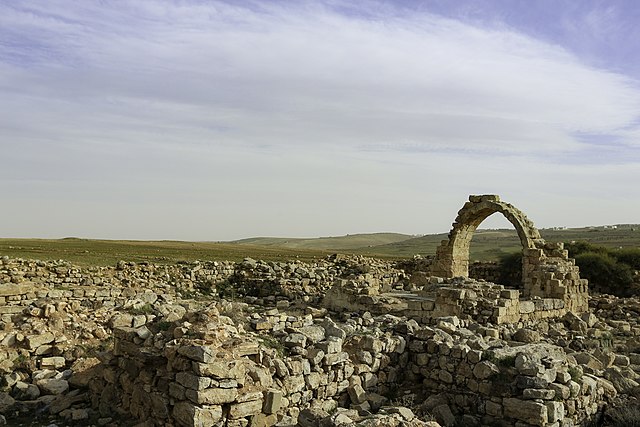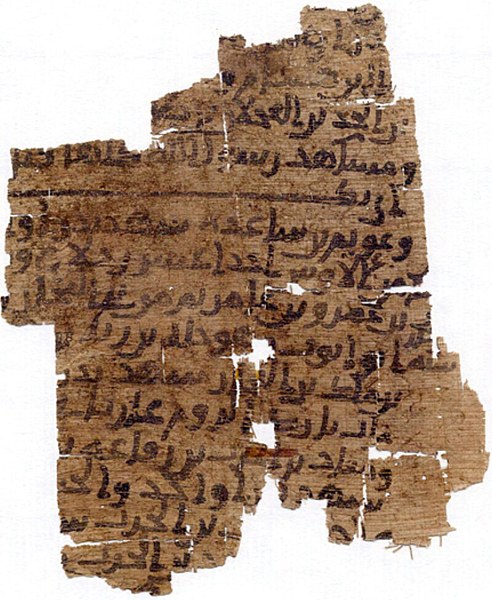The Battle of Mu'tah took place in September 629, between the forces of Muhammad and the army of the Byzantine Empire and their Ghassanid vassals. It took place in the village of Mu'tah in Palaestina Salutaris at the east of the Jordan River and modern-day Karak.
The tomb of Muslim commanders Zayd ibn Haritha, Ja'far ibn Abi Talib, and Abd Allah ibn Rawahah in Al-Mazar near Mu'tah, Jordan
Archaeological remains that exist near the place where the Battle of Mu'tah occurred
Muhammad was an Arab religious, social, and political leader and the founder of Islam. According to Islamic doctrine, he was a prophet divinely inspired to preach and confirm the monotheistic teachings of Adam, Abraham, Moses, Jesus, and other prophets. He is believed to be the Seal of the Prophets within Islam, with the Quran as well as his teachings and practices forming the basis for Islamic religious belief.
"Muhammad, the Messenger of God" inscribed on the gates of the Prophet's Mosque in Medina
Two folios of the Birmingham Quran manuscript, an early manuscript written in Hijazi script likely dated within Muhammad's lifetime between c. 568–645
An early manuscript of Ibn Hisham's al-Sirah al-Nabawiyyah, believed to have been transmitted by his students shortly after his death in 833
An early manuscript of the Muwatta of Malik ibn Anas, dated within his lifetime in c. 780






